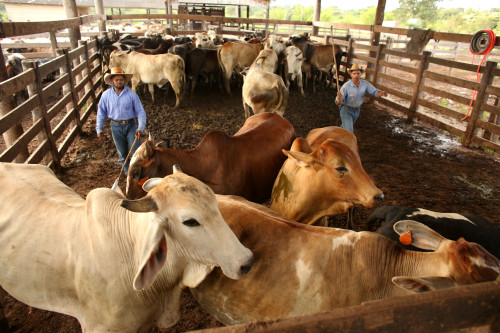By Roberto Samora and Kylie Madry
SAO PAULO (Reuters) -Higher U.S. tariffs on Brazil are expected to reshape global beef trade flows, sparking increased shipments to the U.S. from countries like Mexico and Australia while Brazil seeks alternative markets, analysts said on Wednesday.
Brazil is the world’s largest beef exporter, with China as its main trading partner. In August, Mexico overtook the U.S. to become its second-largest export destination for the commodity.
“It is very likely that countries that can triangulate Brazilian beef will increase their purchases following Mexico’s example,” Mauricio Nogueira, director of livestock consultancy Athenagro, said in an interview. “If Mexico starts sending beef to the U.S., it will have to buy from someone, it will have to buy from here.”
Argentina would be another candidate to import and eventually re-export Brazil’s beef to the U.S., he added.
Nogueira’s Athenagro did not change its year-end projection for Brazil’s beef exports after Trump’s 50% tariffs on the country’s products took effect on August 6. His consultancy is projecting a 7.5% increase this year in Brazilian beef exports, to 3.08 million metric tons. Through July, such exports rose more than 13%.
Luis Rua, secretary of trade at Brazil’s agriculture ministry, said Brazilian beef helps keep Mexican inflation in check. Whether Mexico will re-export supplies from Brazil is unclear.
“We send it to Mexico, but we don’t know exactly what Mexico will do with the meat,” he told Reuters.
Economist Thiago de Carvalho confirmed expectations of a shift in global beef flows, with Brazil potentially selling to markets previously served by Australian exporters, for example.
Factors such as tight global beef supplies, which the U.S. is facing after its cattle herd hit historical lows, may also direct demand to Brazil, Carvalho added.
Japan, which traditionally buys meat from the U.S., may soon open up for Brazilian products, he said.
(Reporting by Roberto Samora in São Paulo and Kylie Madry in Mexico CityWriting by Ana Mano; Editing by Richard Chang)


